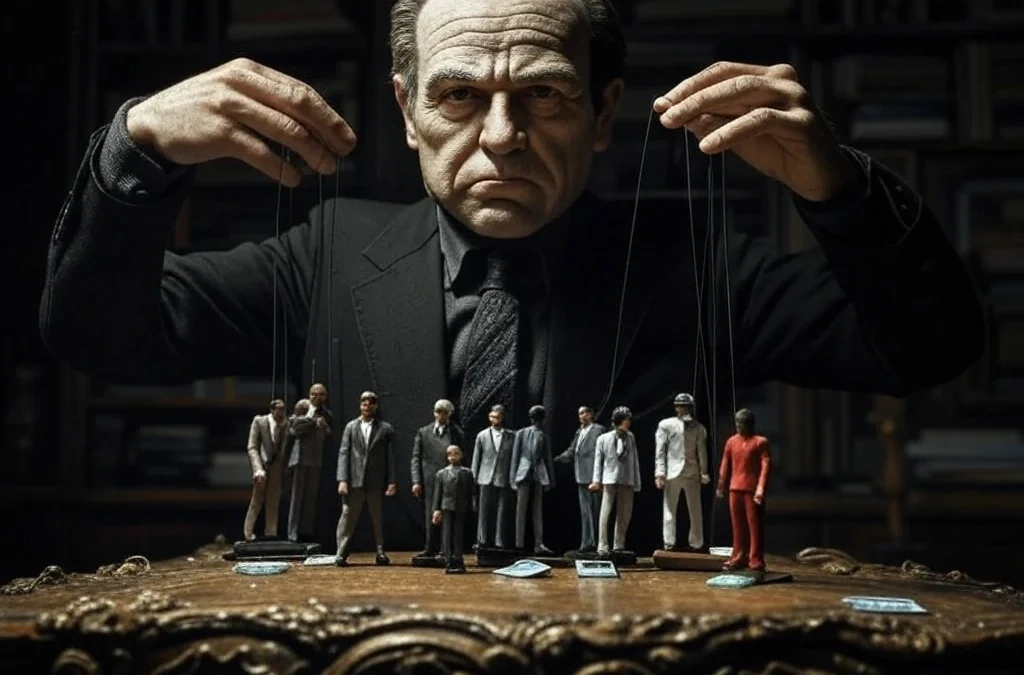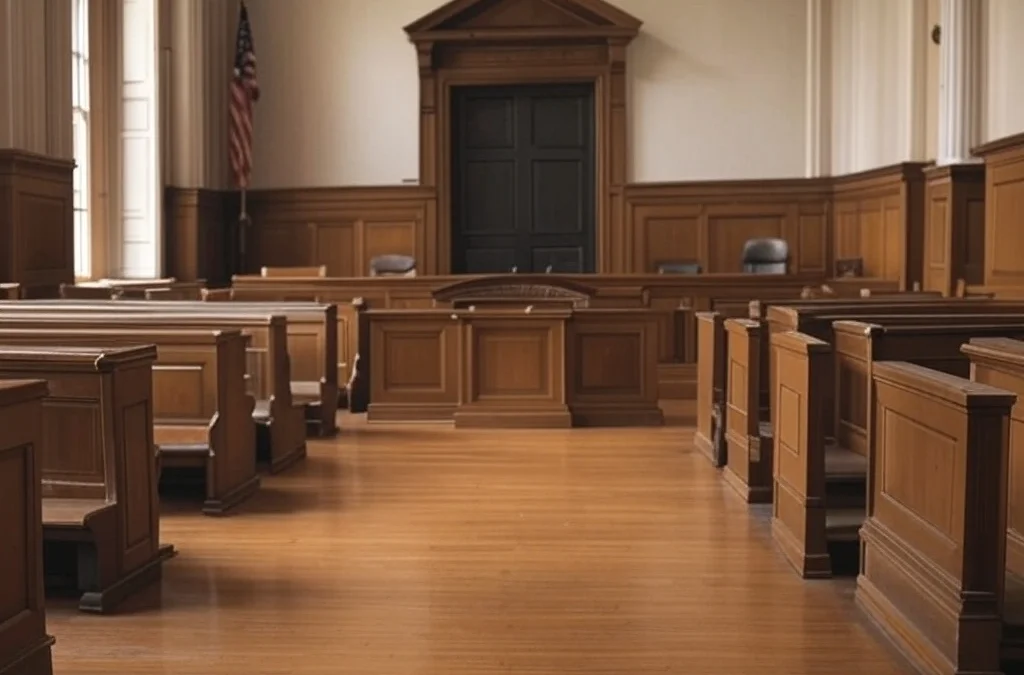Disappointment is an emotional response we all experience when our hopes, expectations, or desires aren’t met. It’s that sinking feeling when reality falls short of what we anticipated. While unpleasant, disappointment is a natural part of the human experience that helps us adjust our expectations and build resilience. This article explores what disappointment truly means, provides 30 clear examples to help you recognize it in various situations, and offers insights on how to handle this difficult emotion in healthy ways.
What Is Disappointment?
Disappointment is a negative emotional response that occurs when expectations, hopes, or desires are not met. It is a feeling of dissatisfaction or sadness that arises when reality falls short of what was anticipated, often leaving a person with a sense of loss, frustration, or regret. Disappointment can be triggered by unmet personal goals, failed relationships, missed opportunities, or unexpected outcomes, and it plays a significant role in shaping human behavior and emotional resilience.
While it is a natural and universal emotion, learning how to cope with disappointment is essential for emotional well-being and personal growth.
30 Examples of Disappointment
Disappointment can take many forms, depending on the situation and what was expected. These 30 examples highlight how everyday moments—from small annoyances to major setbacks—can lead to that familiar feeling of letdown. Each one shows how expectations and reality don’t always align, often in ways that catch us off guard.
1. Job Rejection
After multiple interviews for your dream job, receiving a rejection email can trigger intense disappointment. The time invested in preparation, the hope built up during the process, and the vision of your future all come crashing down with a single message.
2. Canceled Plans
You’ve been looking forward to a concert for months, bought tickets, planned your outfit, and then it gets canceled at the last minute. That deflated feeling when something you’ve been eagerly anticipating disappears is classic disappointment.
3. Failed Test
Studying hard for an exam only to receive a failing grade creates a particular type of disappointment, especially when you believed you were well-prepared. The gap between expected success and actual results hits hard.
4. Broken Promises
When someone important to you breaks a promise they made, the disappointment comes from both the lost opportunity and the damaged trust. This type of disappointment often has a relationship impact beyond the specific promise.
5. Bad Weather on Vacation
After planning a beach vacation for months, arriving to find a week of rain and storms creates disappointment. The contrast between your mental image of relaxing in the sun and the reality of being stuck indoors is particularly frustrating.
6. Underwhelming Restaurant Experience
When a highly-rated restaurant serves mediocre food or provides poor service, the disappointment stems from unmet expectations. You might feel you wasted both money and a rare opportunity for a special meal.
7. Movie Letdown
Walking out of a movie that had an exciting trailer but turned out to be boring or poorly made creates a specific kind of cultural disappointment. The two hours spent hoping it would improve only adds to the letdown.
8. Gift Disappointment
Opening a gift you were excited about only to find something you don’t like or can’t use creates a complex disappointment, often mixed with guilt for not appreciating the gesture more.
9. Sports Team Loss
When your favorite team loses an important game, especially after leading or being favored to win, the disappointment can feel personal even though you weren’t playing yourself.
10. Home Purchase Falling Through
After finding your dream home, making an offer, and beginning to imagine your life there, having the deal fall apart at the last minute creates a profound sense of loss and disappointment.
11. Failed Recipe
Spending hours preparing a complicated recipe only to have it turn out badly creates kitchen disappointment. The contrast between the beautiful photo in the cookbook and your reality can be quite stark.
12. Late Package Delivery
Waiting anxiously for an important package that keeps getting delayed represents a small but real disappointment that many people experience regularly in the age of online shopping.
13. Promotion Passed Over
When a colleague receives the promotion you were hoping for, the disappointment often comes with questions about your own performance and value to the organization.
14. Technology Failure
When a new gadget breaks shortly after purchase or doesn’t work as advertised, the disappointment includes frustration over wasted money and inconvenience.
15. Friend Cancellation Pattern
When a friend repeatedly cancels plans at the last minute, the disappointment extends beyond the specific missed opportunity to questions about the relationship itself.
16. Garden Failure
Planting seeds, watering faithfully, and tending to a garden only to have plants die or produce little creates a slow-building disappointment after weeks or months of hope.
17. Relationship Breakup
The end of a relationship often involves profound disappointment as hopes for a shared future dissolve. This type of disappointment can take considerable time to process.
18. Poor Customer Service
After being a loyal customer to a company for years, receiving terrible service during a problem creates disappointment that often leads to changing brands or providers.
19. Missed Opportunity
Realizing you’ve missed a chance for something valuable—whether a limited-time sale, an application deadline, or a once-in-a-lifetime event—creates regret-tinged disappointment.
20. Health Setback
When recovery from illness or injury takes longer than expected or a treatment doesn’t work as hoped, the disappointment affects not just plans but fundamental well-being.
21. Book Disappointment
Reading a highly-recommended book that you find boring or poorly written creates a specific intellectual disappointment, especially if you pushed through hoping it would improve.
22. Birthday Letdown
When your birthday passes with little acknowledgment or celebration, the disappointment can feel particularly personal, as if your importance to others is being measured.
23. Unexpected Bill
Opening mail to find a much larger bill than anticipated creates financial disappointment that can trigger worry about budgets and future expenses.
24. Poor Hotel Experience
Arriving at a hotel that looked beautiful online but is actually rundown or dirty creates travel disappointment, especially when you’re far from home with few alternatives.
25. Children’s Behavior
When children make choices that go against family values or expectations, parents often experience a deep, personal disappointment that’s complicated by love and responsibility.
26. Weight Loss Plateau
After weeks of discipline with diet and exercise, stepping on the scale to find no progress creates a particular type of disappointment in personal goals and efforts.
27. Computer Crash
Losing hours of work when a computer crashes before you could save creates sudden, intense disappointment that’s often accompanied by self-directed frustration.
28. Wedding Day Rain
Planning an outdoor wedding only to wake up to pouring rain represents a disappointment on what was supposed to be a perfect day, though many find silver linings later.
29. Poor Work Recognition
Completing an excellent project at work only to have it go unnoticed or unappreciated by managers creates professional disappointment that can affect motivation.
30. Reunion Letdown
Traveling to meet an old friend only to find you no longer connect well or have much in common creates a bittersweet disappointment about the passage of time and changing relationships.
Synonyms of Disappointment
Disappointment can take many forms, and depending on the situation, different words may better capture its tone or intensity. Here are some common synonyms that reflect various shades of disappointment:
-
Letdown – A mild word often used when expectations weren’t met, especially in casual or personal situations.
Example: The movie was a bit of a letdown after all the hype. -
Frustration – A stronger term, often used when someone feels blocked or hindered from achieving something.
Example: He couldn’t hide his frustration after failing the test again. -
Disillusionment – This suggests a deeper, more emotional disappointment, often after realizing something or someone isn’t as good as once believed.
Example: She felt a sense of disillusionment after learning the truth about her hero. -
Regret – Often used when disappointment is tied to one’s own choices or actions.
Example: He expressed deep regret over missing the opportunity. -
Dismay – Implies sudden disappointment, often mixed with shock or fear.
Example: They watched in dismay as their plans unraveled. -
Despair – A much stronger and more emotional synonym, usually reserved for moments of deep hopelessness.
Example: She fell into despair when her lifelong dream was crushed.
The Psychology Behind Disappointment
Disappointment isn’t just an unpleasant feeling—it serves important psychological functions. When we experience disappointment, our brains are processing the gap between expectation and reality. This cognitive dissonance forces us to adjust our mental models of the world, making future expectations more accurate.
Disappointment has been shown to activate regions involved in emotional regulation and decision-making. This dual activation helps explain why moderate disappointment can actually lead to better decision-making in the future. However, when disappointment becomes frequent or overwhelming, it can contribute to pessimism or learned helplessness.
Interestingly, our ability to feel disappointment develops alongside our capacity for hope and anticipation. Young children show increasing complexity in their disappointed reactions as they mature, suggesting that this emotion is linked to cognitive development and social learning.
How Disappointment Differs Across Cultures
While disappointment is universal, how it’s expressed and handled varies significantly across cultures. In more individualistic societies, disappointment is often viewed as a personal emotion to be worked through individually. People might openly express their letdown and seek validation for their feelings.
In contrast, collectivist cultures may emphasize containing disappointment to maintain group harmony. In Japan, for example, the concept of “gaman” (enduring the seemingly unbearable with patience and dignity) influences how disappointment is processed—often privately and with emphasis on acceptance rather than complaint.
Cultural differences also emerge in what situations trigger the strongest disappointment. Societies with higher uncertainty avoidance tend to experience stronger disappointment when plans change unexpectedly, while those emphasizing achievement may feel deeper disappointment around professional setbacks.
Healthy Ways to Cope with Disappointment
Learning to handle disappointment effectively is a crucial life skill. Here are some healthy approaches:
- Allow yourself to feel it. Ignoring or suppressing disappointment often makes it linger longer. Give yourself permission to acknowledge your feelings without judgment.
- Maintain perspective. Ask yourself how important this particular disappointment will be in a week, a month, or a year. Many things that feel devastating in the moment lose significance with time.
- Look for lessons. Consider what you can learn from the experience. Were your expectations realistic? Is there something you could do differently next time?
- Practice self-compassion. Treat yourself with the same kindness you would offer a good friend facing disappointment. Avoid harsh self-criticism.
- Find the silver lining. While not every disappointment has an obvious upside, looking for unexpected benefits or opportunities can help shift your perspective.
- Take constructive action. When possible, channel disappointment into productive next steps rather than rumination.
- Connect with others. Sharing your feelings with supportive people can provide comfort and new perspectives.
Why Disappointment Hurts So Much
Disappointment isn’t just about what went wrong. It’s about what could have been. That’s what makes it feel so personal. You pictured an outcome, made plans, hoped for something better. And then it didn’t happen.
Sometimes, it’s a small sting—like a friend canceling dinner. Other times, it hits harder. A relationship ends. A job offer falls through. A goal you worked toward for years slips away in a moment. In those times, disappointment feels heavier. It doesn’t just shake your plans—it can shake your identity.
We tend to blame ourselves, even when it’s not our fault. That’s because disappointment often feels like failure, even if it isn’t. But the truth is, disappointment means you cared. It means you tried. And that’s not something to be ashamed of.
Coping with disappointment isn’t about pretending it doesn’t matter. It’s about learning how to feel it without getting stuck in it. Let yourself be upset. Then take a breath and ask, “What now?” That question shifts your mind from regret to possibility.
Emotional resilience doesn’t come from avoiding bad feelings. It comes from going through them and coming out a little stronger. Setbacks can teach you what matters. They can sharpen your focus, force you to rethink your goals, or remind you that some things were never right for you to begin with.
You don’t have to be perfect at handling letdowns. Most people aren’t. What matters is that you don’t let a bad moment convince you that the future will be the same.
The way you deal with disappointment shapes how you see yourself and how you move forward. It’s not always easy. But with time, reflection, and support, it becomes possible—and sometimes even powerful.
When Disappointment Becomes Problematic
While disappointment is normal, there are situations where it may signal deeper issues:
Persistent disappointment that doesn’t fade with time may indicate depression or anxiety disorders that warrant professional help.
Disproportionate reactions to minor letdowns might suggest unrealistic expectations or perfectionistic tendencies that can make life unnecessarily difficult.
Avoidance behavior where someone stops making plans or taking risks to prevent potential disappointment can severely limit life experiences and growth.
Projection of disappointment onto others through blame or criticism creates relationship problems and prevents personal growth.
If you find disappointment significantly interfering with your daily functioning or happiness, speaking with a mental health professional can provide valuable strategies and support.
Using Disappointment as a Growth Opportunity
Handled well, disappointment can become a powerful catalyst for personal development:
Resilience building: Each time you recover from disappointment, you strengthen your emotional muscles for future challenges.
Expectation refinement: Disappointment helps calibrate your expectations to reality, leading to greater satisfaction over time.
Value clarification: Being disappointed about something helps reveal what truly matters to you, offering clarity about your priorities.
Creativity stimulation: Some of history’s greatest innovations arose from disappointment with the status quo. When Plan A falls through, the search for alternatives can lead to unexpected breakthroughs.
Empathy development: Experiencing disappointment increases your ability to understand and connect with others going through similar emotions.
Conclusion
Disappointment, while uncomfortable, is an inevitable and necessary part of the human experience. The examples throughout this article demonstrate how universal yet uniquely personal this emotion can be. By understanding disappointment’s purpose, recognizing it in various contexts, and developing healthy responses, we can transform this challenging emotion from a mere setback into a stepping stone for growth.
Rather than viewing disappointment as failure, we can reframe it as feedback—information that helps us refine our expectations, clarify our values, and build resilience. In this way, life’s letdowns become not just moments to endure but opportunities to become wiser, more adaptable, and ultimately more satisfied with the reality of our lives, even when it differs from our initial hopes.
Read also: 30 Cynicism Examples in Everyday Life & Definition
The Most Popular on BitGlint

30 Examples of Rebirth: Definition & Meaning
Rebirth represents one of the most powerful concepts in human experience - the process of starting anew after an...

40 Natural Resources Examples & Their Uses
Natural resources are the building blocks of civilization. From the water we drink to the fuel that powers our cars,...

30 Cynicism Examples in Everyday Life & Definition
Cynicism is something most people have seen, heard, or even felt - but few stop to really think about what it means....

30 Moral Reasoning Examples & Definition
Moral reasoning is something most people use every day, often without even realizing it. It’s the thought process...

30 Naivety Examples & Definition
Naivety is something most people experience at some point in their lives. It often starts in childhood, but for some,...

50 Great Wisdom Examples & Helpful Advice
Wisdom is one of the most important qualities a person can have—but also one of the most misunderstood. It’s not just...

50 Ambition Examples in Life and Work
Ambition is the drive to achieve something greater. It pushes people to improve, set goals, and keep moving...
Get Inspired with BitGlint
The Latest
100 Things That Are in The Sky
The sky is full of things - some you see every day, others only once in a while. Some are natural, like clouds and stars. Others are made by people, like airplanes and satellites. From quiet sunsets to loud rocket launches, the sky is never empty. People have been...

50 Moral Principles and Examples of Each
Moral principles serve as the foundation of ethical decision-making, guiding our actions and interactions in everyday life. Whether we realize it or not, these principles shape our personal relationships, professional choices, and societal structures. In today's...
30 Patterns in Nature: Examples & Explanation
Patterns in nature surround us every day. From the delicate veins on a leaf to the mesmerizing spirals of a galaxy, these natural patterns reflect an organized world that's easy to overlook. But have you ever stopped to wonder why these patterns exist, or why our...
30 Best Moral Dilemma Examples
Have you ever found yourself in a situation where you were faced with a tough decision, one that seemed to test your values and morals to their very core? Moral dilemmas are complex situations that present individuals with a choice between two or more options, each of...

